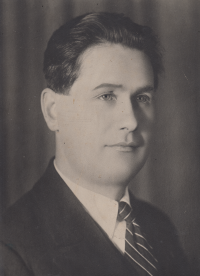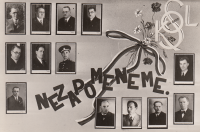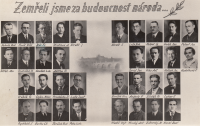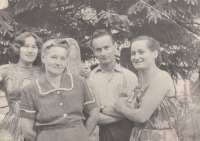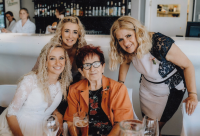They said in the square that Dad had been arrested by the Gestapo. Then our terrible life began.
Download image
Věra Blahůšková, née Huláková, was born on 20 February 1939 in Zlín. She grew up in Uherský Brod. Her father Jan Hulák had an economic and pedagogical education. After finishing his studies, he worked briefly as a teacher in Vlčnov, then held the position of municipal accountant at the Uherský Brod town hall. His wife Božena, née Fialová, took care of the household. Witness´s father was involved in the National Socialist Party and Sokol, which led him to join the anti-Nazi resistance organisation Defence of the Nation. The Gestapo came for Jan Hulák on 1 September 1939 as part of the so-called Action A. He was subsequently imprisoned in the concentration camps at Buchenwald, Dachau and Auschwitz, where he died on 14 August 1942. Věra Blahůšková graduated from the pedagogical school in Kroměříž in the 1950s and earned her living as a teacher. She joined the Communist Party in the early 1960s, was involved in the Local National Committee (MNV) in Uherský Brod in the pre-November Revolution period, and continued to work in the Communist Party after the Velvet Revolution. She and her husband Karel Blahůšek raised their daughters Věra and Lenka. She retired in 2000 and was living in Uherský Brod until 2023.
